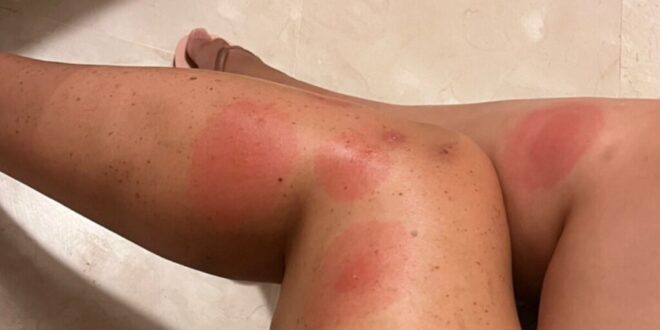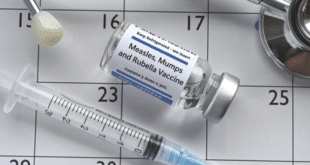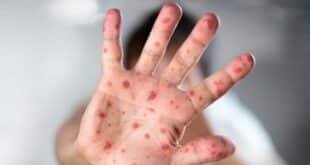Skeeter syndrome and mosquito bites. Credit: Letara Draghia
Most mosquito bites cause a small, itchy bump. However, for some, the saliva of the mosquito can trigger an allergic reaction that causes extreme swelling, severe pain, fever and infection.
Some mosquito bites become dangerous quickly, even though most are harmless. If you live or are on vacation in an area prone to mosquitoes, this article will help you recognise Skeeter Syndrome, how to reduce the symptoms and when to seek medical attention.
What is Skeeter Syndrome?
Skeeter Syndrome is an allergic reaction that occurs locally to mosquito saliva proteins. Skeeter syndrome is a severe local allergic reaction to proteins in mosquito saliva.
- Swelling that goes beyond the bite
- Red, painful, and hot skin
- Itching intense
- Fever
- Scarring
According to WebMDBlisters, hives and hard red-brown bumps are all possible reactions that can last several days, even weeks.
South Korean singer IU has recently revealed her long-term experience with this condition. When I’m bitten I get large, swollen bumps. Sometimes they are so bad that I need antibiotics. She said that the bites are painful and ooze. She said that some bites leave permanent scars, and patches of damaged skin.
Skeeter Syndrome: How to tell if you are affected
- The swelling is large or unusually hot
The average bite is no larger than a penny. However, if it grows bigger, or starts to “look like an Avocado pit” (or any other size), then you might have Skeeter’s syndrome, says Dr Zachary Rubin a pediatric allergist from Chicago. SELF).
The bites can be extremely painful, itchy, and warm to touch. Untreated, the skin may discolour or blister.
- The bite becomes more severe after a couple of days
Bite symptoms usually appear within minutes or even hours after being bitten, and they fade over a few days. Skeeter’s syndrome could be the cause of your worsening reaction after three to five days.
Watch out for these symptoms:
- Redness or swelling that spreads
- Blisters, or yellow discharge
- Fever headaches or chills
- The affected area may be painful when moved.
“All those signs suggest that you might have an infection or even cellulitis,” Dr Karen Blatman says, an allergist with Dartmouth Health. SELF).
Cellulitis can be a serious infection caused by bacteria that can spread to the bloodstream. The infection is spread by bacteria under the fingernails that enters broken skin from scratching. If symptoms worsen, trace a circle using a pen around the bite. “If swelling or a reddened area spreads beyond the bite, call your doctor. [the circle]. See a physician,” advises Dr Rubin.
Patients with diabetes or lymphedema, for example, are more susceptible to infection. They should seek medical attention as soon as possible.
- Feel sick or unwell after being bit
Some mosquitoes are carriers of dangerous viruses such as West Nile, dengue and malaria. Dr Rubin says that bites from mosquitoes carrying disease are no different than normal bites.
Skeeter syndrome or signs of infection can show up within days.
- Nausea, vomiting, or diarrhoea
- Headache or muscle pain
- High fever or chills
- Rash or joint pain
The US Department of Health and Human Services has listed the three mosquito-borne diseases as a public health concern in 2023. This is especially true for warmer regions and travellers.
Only 1 in 4 dengue infected people show symptoms. However, 1 in 20 suffers from severe internal bleeding and shock. West Nile viruses cause no symptoms for 80 per cent of the population, but 1 in 150 people develop encephalitis that can lead to blindness, or even death. SELF.
Skeeter Syndrome is more common in women than men.
Some people react more strongly to this than others. WebMD Note three high-risk groups
- Babies and children are at lower risk of infection due to their lower immunity
- Adults encountering a new mosquito species
- People with immune system diseases
People are becoming increasingly savvy about their own lives. You can learn more about this by clicking here. As you age, your skin becomes more sensitive to bites. This article will explain how mosquitoes choose their victims.
Skeeter syndrome: How to treat the symptoms
If you think you’re having a severe reaction, get medical advice – especially if it’s your first time experiencing this level of swelling or pain.
The most common treatments include
- Oral antihistamines
- Topical steroid creams – strong ones may be prescribed
- Ice packs
- Oral steroids
It is important to avoid scratching, even though this can be very tempting. Scratching opens the door to infection and breaks the barrier of the skin, especially when the environment is hot or humid.
How to avoid mosquito bites
Prevention is the key. Here are a few practical steps to take.
- Try using mosquito repellents
It may take some time to find the right one for you. Linalool and Geranium are good ingredients.
Wear long sleeves or trousers, particularly in areas with grass and trees. Choose thicker materials mosquitoes can’t easily bite through – yep, they can bite through those lovely cooling fabric including cotton and linen, annoyingly.
Install window and doors screens. Use mosquito nets. Air conditioning can help keep mosquitoes out.
Empty buckets, flowerpots, and other containers. Fix leaks in plumbing and cover septic tank.
Skeeter syndrome is something I’ve experienced myself. To avoid getting bitten, I cover up, spray myself in diluted peppermint essential oils, use mosquito nets and don’t sit outside after dusk. I’ve also tried drinking gin and tonic as apparently mosquitos dislike quinine in tonic – it’s enjoyable but doesn’t stop me getting bitten, unfortunately. I have had major swellings, infections and scarring in the past. Ice packs can help reduce swelling, redness and itching. Sometimes, I can itch for weeks after being bit. It’s crazy.
Skeeter syndrome: when to visit a physician
Seek urgent care if:
- The bite continues to grow or becomes extremely painful
- You get a fever, chills, pus
- You may feel unwell after being bitten
- You have underlying diseases like diabetes or an immune system that is weakened
Skeeter Syndrome does not have a specific test. The diagnosis is usually made based on the symptoms and an examination by a doctor. Do not wait if you are concerned. If there is ever any confusion or uncertainty about your bite, it’s important to see a doctor.
Browse all articles on health and Beauty
 Costa News Spain Breaking News | English News in Spain.
Costa News Spain Breaking News | English News in Spain.







